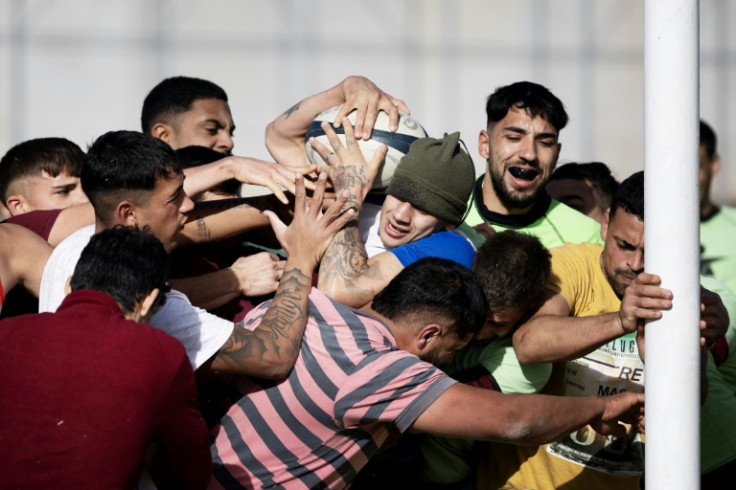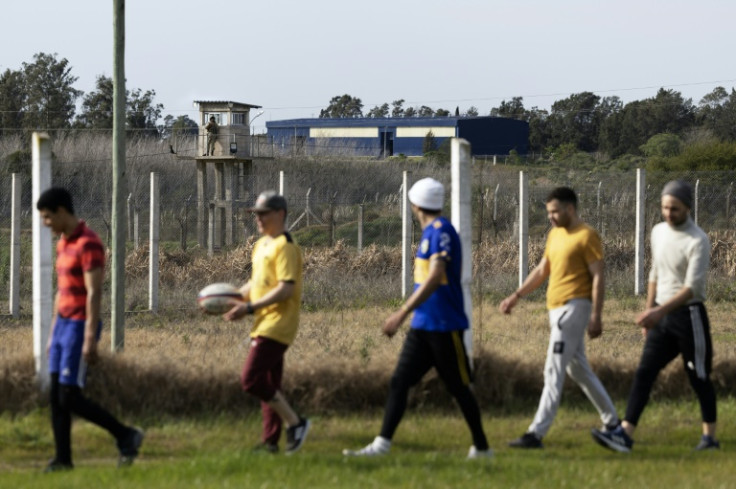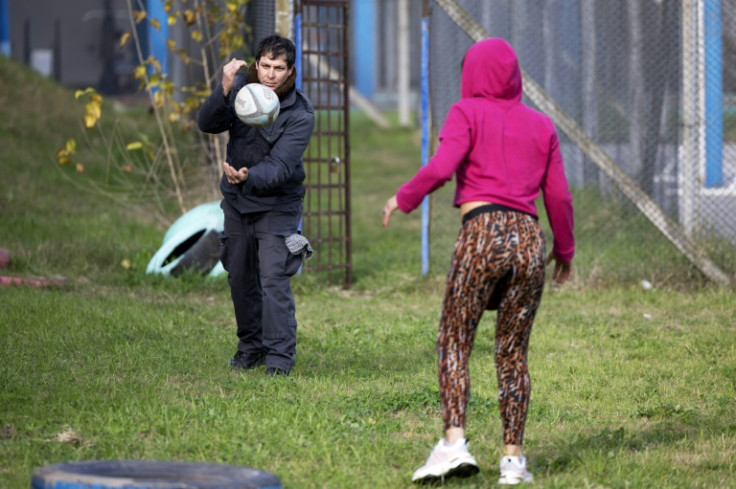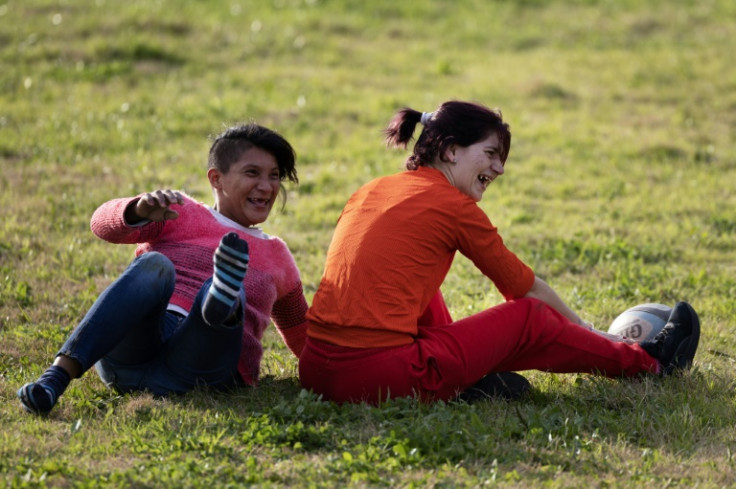No Bars To Uruguay's Rugby Inmates

The smiles of the tryscorers and the grimaces of the tackled are the same as you will find on any rugby field in the world.
There is one big difference though in these training sessions in Montevideo, namely the wire fences, security guards and grey, unforgiving prison walls.
In Uruguay, rugby is becoming an institution within the institutions.
The "Pelota al Medio a la Esperanza" programme was originally created in 2010 with the aim of preventing educational dropout and promoting values of healthy competition in children and adolescents from low socioeconomic contexts.
Six years later, it scampered down the blind side and began implementing rugby activities in centres of the National Rehabilitation Institute.
Through an agreement between the Uruguayan Rugby Union and the Ministry of the Interior, players and former players of the national rugby team, Los Teros, go every week to eight different prisons in five departments of the country to teach the sport and train with the inmates.
Around 350 men and women are involved in the scheme and there is no doubt that every one of them will be glued to the news of how Los Teros get on in France where they are competing in their fifth World Cup.
Ranked 17th in the world and second in South America behind Argentina, the Uruguayans have yet to make it out of the pool stage although they did record wins over Spain in 1999 and Georgia in 2003.
The majority play their rugby at home in Uruguay although several, notably scrum-half Santiago Arata and lock Manuel Leindekar, have established themselves in the French Top 14 with Castres and Bayonne respectively.
They have almost zero chance of making it out of the pool stage this time as well, joined as they are by France, New Zealand and Italy.
Their meeting with Namibia in Lyon on September 27 will be their World Cup final -- and the prisons will be cheering every point.
++ Ahead of the Rugby World Cup in France, Agence France-Presse asked 20 aspiring photographers from each country qualified for the competition to show one aspect of the rugby union culture in their homeland, with the help of Canon cameras who are sponsoring the tournament. From Namibia to Fiji via Georgia and Scotland this photo essay gives us a glimpse of the core values of rugby on five continents.



© Copyright AFP {{Year}}. All rights reserved.





















